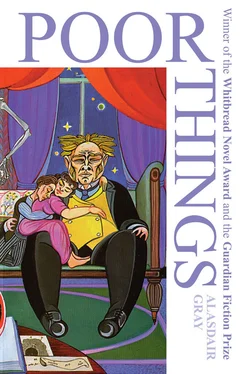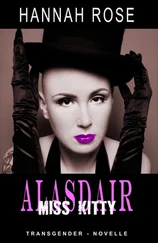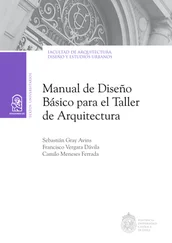Then Baxter turned to me and said friends of his father had kept him informed of my standing in the Glasgow medical profession. I was a good diagnostic and bacterial pathologist, with wide knowledge of the hygiene which allowed the efficient functioning of the human organism. These were exactly the qualifications needed by a public health officer, and he hoped I would consider that. Prevention of disease was more important than cure. There were no better public benefactors than those who strove to make Glasgow better watered, drained and lit — better housed , in short. But his main reason for wanting me in such a position was personal. When Bella eventually got charge of her own clinic (and he would put his fortune into helping her create one) the support of a highly placed local government official would be very useful to her. This argument convinced me.
I now raised the question of my marriage, and suggested it be as soon as possible. Bella said she must first make sure she had contracted no venereal infection through her work for Madame Cronquebil. Baxter said six weeks of sexual quarantine should be sufficient, then said he was tired, bade an abrupt good-bye and went upstairs. I realized that the thought of Bella marrying me instead of him still caused him pain. I told her so, and she laughed at the idea. She did not deny it, but thought it a piece of daftness he would easily recover from. This is the only area in which I found my dear Bella unfeeling toward the pain of another. But when we got children of our own I discovered most younger people are happily unfeeling toward parents and guardians they feel confident with.
So we kissed good night, and went upstairs to the landing from which her bedroom opened, and kissed good night again. She murmured, “You are a lot stronger, Candle. You nearly fainted when we did this in the old days.”
I said I feared I was less sensitive now — my body had missed her for so long that it did not yet truly believe she was with me. She laughed quietly and said she was less passionate too.
“I need cuddles more than weddings, nowadays,” she said, “and I haven’t had a decent all-night-long cuddle since Wedder started sleeping upside-down after Alexandria. Let us sleep together tonight, you necessary Candle. With a sheet between us I can feel your arms all round me yet do you no harm. Would you mind cuddling me just like that?”
I said I would love to do it and that exactly this preliminary marriage rite was very frequent in rural Scotland, where it was called “bundling”.
So we went to bed and bundled, and have not slept apart since, except when she has to attend London meetings of the Fabian Society.
Though an atheist I am no bigot. When we knew Bella was free from disease I arranged a simple presbyterian wedding service, for I thought this a harmless and traditional way to solemnize our vows. The Park church was nearest but I did not want the neighbours’ children scrambling at the door, so chose Lansdowne United Presbyterian, less than ten minutes’ walk away beside Great Western Road. 25English readers may blink when I say the service was to be at 9 a.m. on December the 25th. It was the earliest date possible, and the Scottish Church does not think Christmas day holier than other unless it fills on the Sabbath. As I stepped out arm-in-arm with Bella, Baxter and Mrs. Dinwiddie arm-in-arm at our heels, I felt a kind of glee that on my wedding-day people were having holidays all round the world, though the Glasgow shops and offices and factories were as throng with business as ever.
It was a frosty morning. Roof tops, gardens and the quieter streets were coated with snow, but we walked with a steady stride for Baxter had paid a gang of little boys to sweep a track clean from our doorstep to the church. The track descended the hillside through the park, but had been well salted so was not slippy. A thin haze of fog, smoky to the nose, did not hide the nearer distances, and I thought I saw figures enter the building ahead of us. This puzzled me. I had assumed Baxter and Mrs. Dinwiddie would be our only witnesses and congregation. Bella had wished to ask Miss MacTavish, Wedderburn, Astley and Madame Cronquebil in order to show them (she said) “that all’s well that ends well”. We had persuaded her that, if they came, these guests would embarrass each other, and had finally invited no one and not advertised the occasion at all. But of course the minister must have called the banns as usual.
We entered the church punctually at one minute to nine and saw the nave was empty but for a row of five men in the front pews. Bella said, “Who are they?” and I did not know, though I saw that one looked unusually tall, thin and military. This set me trembling. I felt a disaster was about to happen, and that Bella and I had walked arm-in-arm up this aisle into the same disaster many times before. I felt I was in a bad dream from which I must struggle awake. Baxter murmured, “Steady McCandless!” in a voice so quietly commanding that I stared at him. He nodded back and I realized he had foreseen everything which might happen and was ready for it. I gripped Bella’s arm more tightly and went forward with the courage of a Christian who knows God is on his side.
We passed the strangers and stood with our backs to them, facing the communion-table. The minister came round the foot of the pulpit and, after some words of introduction, formally asked if I was Archibald McCandless, only son of Jessica McCandless, spinster of the parish of Whauphill in Galloway. I said I was. He then asked my fiancée if she was Bella Baxter, daughter of Ignatius MacGregor Baxter, commercial agent in Buenos Aires, and of his wife Seraphina Rhinegold Cumberpatch? Bella said she was. I wondered why Baxter had invented for the mother such a long improbable name and reckoned he had calculated that in a world full of oddities a list of names which did not contain a long improbable one was unlikely. By the time I had worked this out the minister was saying that if anyone present knew why these two should not be joined in holy wedlock, let them speak out. Then a high, clear grating voice behind me said, “ This marriage cannot take place! ”
We turned. The words had been spoken by the very tall thin man who stood erect, glaring steadily at us like a neatly carved, life-size wooden puppet. He looked wooden because his thick steel-grey moustache (which covered his mouth) and sharply pointed beard were nearly the same tone as his pinkish-brown skin. A swarthy, thickly built, wild-looking old man was struggling to his feet beside him.
“Who are you?” demanded the minister, his voice suddenly petty and squeaky.
“I am General Sir Aubrey de la Pole Blessinton. The woman who claims to be Bella Baxter is me lawful wedded wife, Victoria Blessinton, whose maiden name was Victoria Hattersley. Here is her father, Blaydon Hattersley, managin director of the Union Jack Steam Traction Company of Manchester and Birmingham.”
“Vicky!” cried the old man, stretching his arms toward Bella while tears spilled down his cheeks. “O my little Vicky! Do you not recognize your old dad?”
Bella looked at him with great interest, then looked again with equal interest at her first husband. The General stared fixedly back. The manufacturer sobbed. My own feelings were too strange to describe. I knew Bella was unknowingly seeing the father of her brain in the first husband of her body, the grandfather of her brain in the father of her body. At last she said, “Well you seem a fascinating pair, but I cannot remember seeing either of you before.”
The General said, “Speak, Prickett.”
A third man stood up and said he was the General’s medical adviser and had treated Lady Blessington for a serious illness for at least eight months before her disappearance. He said that the lady who had answered to the name Bella Baxter had a voice and appearance so similar to those of Lady Blessington that he had no doubt they were identical. At this the minister said the wedding could not take place.
Читать дальше












